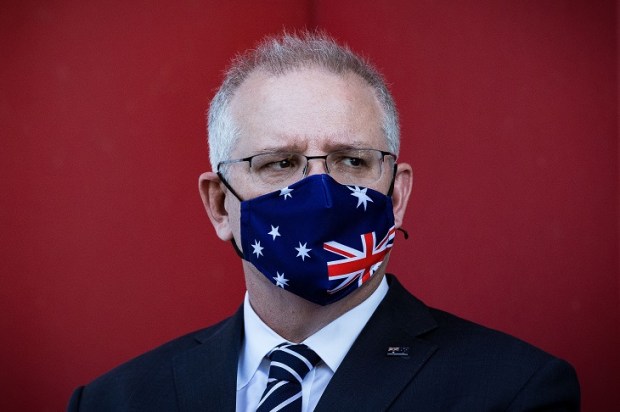There’s nothing quite like cold water swimming, and for this ‘extreme’ sport, Tasmania is the place to be. Getting in is a shock to the system which is why I prefer to gently ease myself in, wading slowly to mid-thigh, putting my hands in before venturing further. By the time I’m waist-deep, my body knows what is coming and has already started shuttling blood into the core.
Getting in sucks. There’s no other word for it. But it only sucks for about a minute. And then it’s okay, the adrenaline starts to flow and you’re on your way.
Why am I telling you this? Because it’s the only analogy I can think of to compare with the systemic shock of standing as a candidate in a snap election.
After five weeks of campaigning, two weeks of waiting, and 80 rounds of counting (thank you Hare-Clark) I discovered I was the ‘final-loser’ in the electorate of Bass. Although five weeks doesn’t sound very long, it’s long enough to learn a few hard lessons about election campaigning. I’m going to share a few of those here.
Lesson 1 – Campaigning is a team sport.
By ‘Team Sport’ think Quidditch-style (for those familiar with the Harry Potter series) games being played simultaneously. Point scoring happens along the way, but ultimately the game only finishes if someone catches the snitch – aka wins the election. Team members are also competing against each other whilst competing against other teams – which comes more into play during Tasmania’s Hare-Clark counting process.
Lesson 2 – Campaign wear consists of comfy shoes, named clothing, and deep pockets.
Put those heels away. You will be wearing sneakers for the foreseeable future as you pound pavements, knock on doors, and run – sometimes literally – between community events. For the entire duration of the campaign be prepared to wear your name clearly and boldly printed across your chest. This is an extremely effective behaviour modifier. Say goodbye to sneaking chocolate and junk food into your shopping trolley, you’ll have to recruit someone to do that for you. Deep pockets are to fund the campaign. Not only does your income stop – if you are a government employee, or if you take leave from work – all campaigns are self/donor funded.
Lesson 3 – Recognise political aspirations early.
The earlier the better – from the age of walking/talking is ideal. Firstly, it’s never too early to start campaigning. Secondly, anything that you have ever said, done, or posted on social media is fair game and will be used against you by your opponents. The sooner you realise this, the sooner you can start censoring your speech (NB for exceptions see Lesson 4 below).
Lesson 4 – There is no such thing as bad publicity.
This lesson is important to keep in mind if your campaign budget is modest but your views are ‘controversial’. No need to put ads in the newspaper, or budget for TV commercials, simply have an opinion on a polarising issue and let the opposing team do it for you.
Lesson 5 – Be clear about why you are standing for election.
When you are being misquoted, misrepresented, called names, and lied about it’s important to remind yourself why you are standing. Remind yourself of all the people who have quietly, and persistently encouraged, supported, and thanked you for standing. Because it’s all about the people.
Dr Julie Sladden is grateful to the Liberal Party of Tasmania for pre-selecting her to stand as a Liberal candidate in the 2024 Tasmanian election. If you’d like to support her caffeine-fuelled writing, you can shout her a coffee here.

























